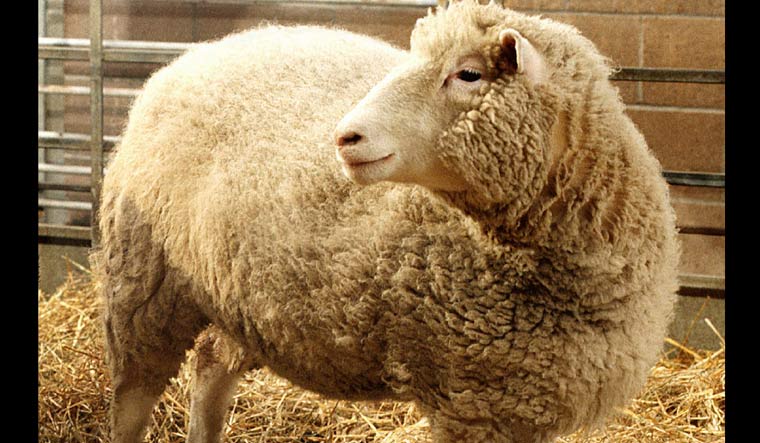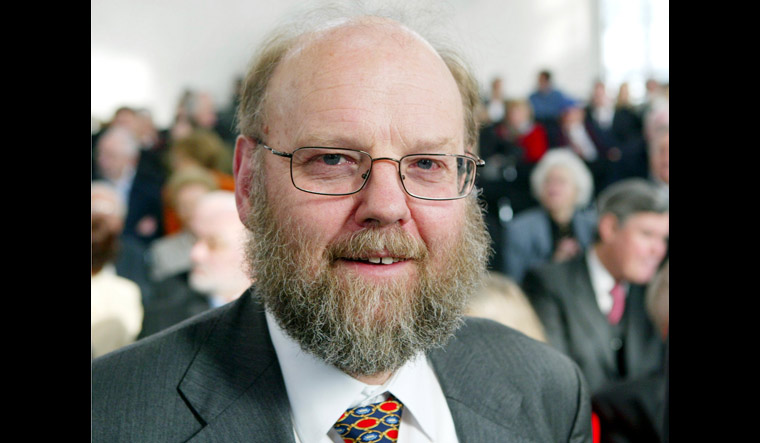The Roslin Institute in Edinburgh has officially announced the sad news of the death of renowned British scientist Ian Wilmut, whose groundbreaking research revolutionised the world of biology and ignited intense ethical debates. Ian Wilmut, aged 79, breathed his last on Monday, leaving behind a legacy that forever altered the course of scientific inquiry.
His pioneering research in the field of biology has had a profound impact, sparking significant ethical discussions and transforming scientific exploration.
Together with his colleague Keith Campbell at the animal sciences research institute in Scotland, Ian Wilmut made international headlines and stirred profound ethical discussions back in 1996 when they unveiled their remarkable creation: Dolly the Sheep, the first-ever mammal cloned from an adult cell.
Often regarded as the "Father of Cloning," Ian Wilmut's pioneering work marked a watershed moment in scientific history. The successful cloning of a mammal from an adult somatic cell, Dolly, challenged established beliefs about the limits of biological replication and posed profound questions about the potential cloning of humans.
Following the groundbreaking achievement, Wilmut redirected his focus towards employing cloning techniques to generate stem cells for use in regenerative medicine, aiming to unlock new frontiers in healthcare.
Bruce Whitelaw, the director of the Roslin Institute, paid tribute to Wilmut, stating, "With the sad news today of Ian Wilmut's passing, science has lost a household name. Ian led the research team that produced the first cloned mammal in Dolly. This animal has had such a positive impact on how society engages with science, and how scientists engage with society."
Wilmut, a native of Stratford-upon-Avon, began his academic journey at the University of Nottingham, where he initially pursued studies in agriculture. However, his passion for animal science soon led him to switch his field of study. In 2005, he made a significant move to the University of Edinburgh. Throughout his illustrious career, Wilmut's contributions to the field were acknowledged and celebrated, culminating in a knighthood bestowed upon him in 2008. After years of dedicated service, he retired from the university in 2012, leaving behind a legacy of groundbreaking research and innovation.
Dolly the sheep: Pioneering a legacy

Dolly the Sheep, born on July 5, 1996, at the Roslin Institute in Scotland, will forever be remembered as an icon of scientific achievement. Under the leadership of Dr. Ian Wilmut, Dolly became the first mammal to be successfully cloned from an adult cell, shattering previously held beliefs about genetic replication.
Dolly's birth was not only significant for its scientific implications but also for its cultural resonance. She captured the public's imagination and ignited debates about the potentials and perils of cloning.
Notably, Dolly was not the first-ever cloned mammal, as another sheep was cloned from an embryo cell in 1984 in Cambridge, UK. However, what set Dolly apart was her origin—she was cloned from an adult cell, a feat previously considered unattainable.
In her later years, Dolly led a relatively ordinary life at the Roslin Institute, where she gave birth to six lambs. Tragically, she succumbed to a lung infection in 2003, a common ailment among animals with limited outdoor access.
Dolly's legacy lives on, not only in the annals of science but also as an exhibit at the National Museum of Scotland in Edinburgh.
Cloning on the global stage
Dolly's birth in 1996 sparked worldwide interest in cloning and its implications. While the cloning of animals for food was banned by the European Parliament, other nations ventured into cloning research.
India made history in 2009 with the cloning of the world's first riverine buffalo calf, named Samrupa, followed by the cloning of numerous other animals.
In China, the Boyalife Group unveiled ambitious plans to produce hundreds of thousands of cloned beef cattle, showcasing the continued interest in cloning for agricultural purposes.
Theoretically, cloning holds the potential to resurrect endangered species, such as woolly mammoths and giant pandas. Researchers worldwide are now employing cloning techniques to generate embryonic stem cells, a development with promising implications for regenerative medicine.



